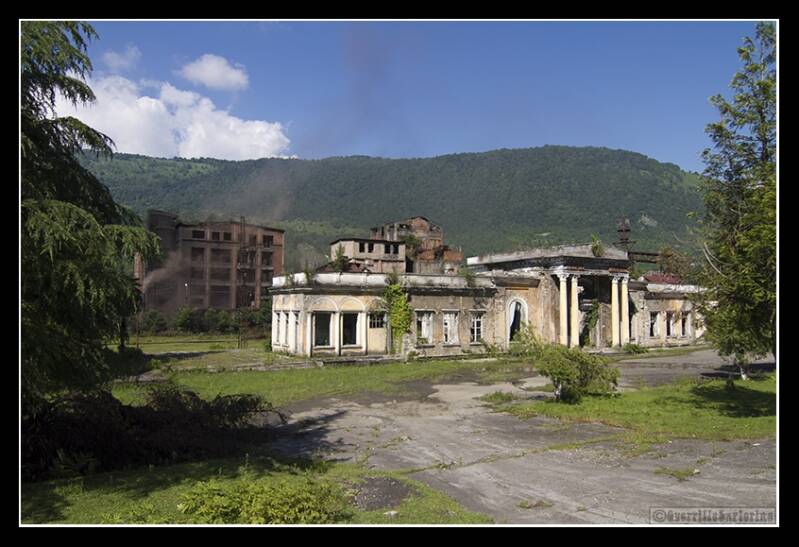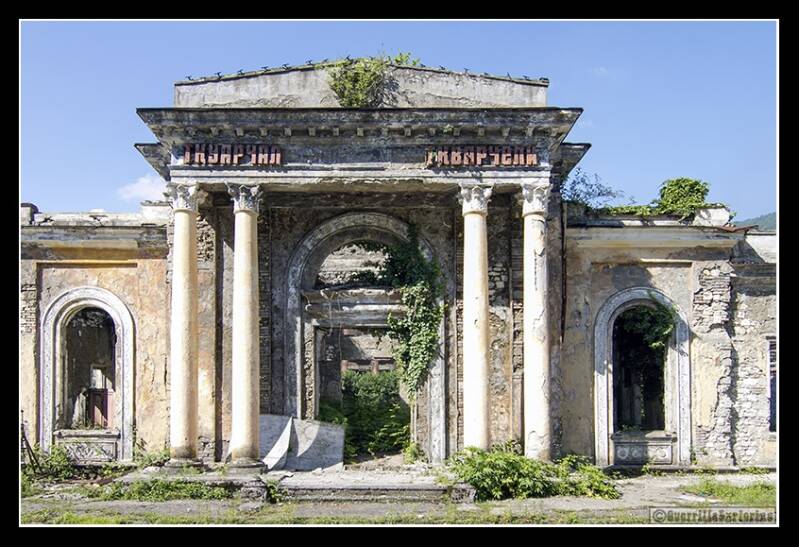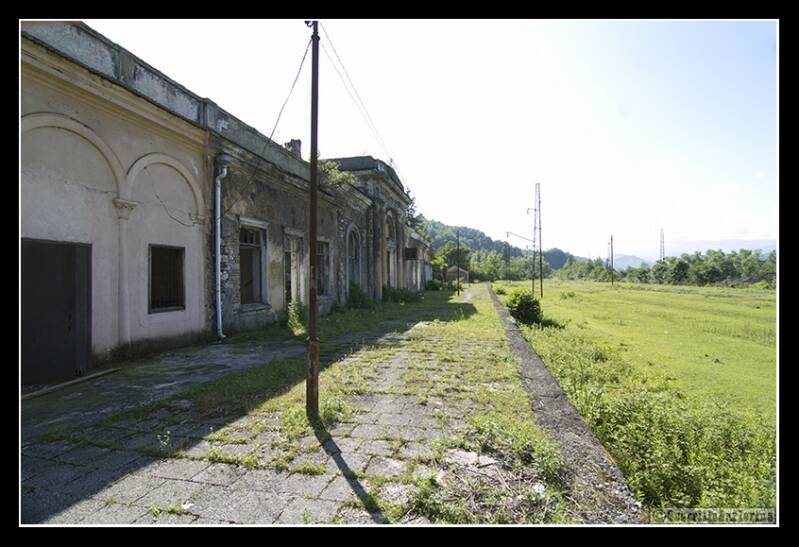GES302 Tkvarcheli
When looking for places to visit, Tkvarcheli probably doesn't feature in one's top 10, or top 10,000 most likely. However it's location and explore opportunities meant it made it onto my list. Nestled in the Caucasus foothills, rarely visited by foreigners and dotted with abandoned places, the area is a ripe for exploring.
Tkvarcheli was founded on the coal it harboured beneath the earth, and from the mid 1930s that coal was mined and fed into the Soviet industrial empire. After the fall of the Soviet empire, the mines were closed as they weren't profitable, and open cast mining was started by a Turkish company instead. Georgia stopped shipments that almost lead the company, Tamsaş, into bankruptcy.
During the Separatist War, the area was the focus of significant fighting. Large numbers of Abkhaz left the capital Sakhumi due to the fighting, and sort refuge in Tkvarcheli. The town came under siege from Georgian forces from Oct 92' to Sept 93', and a great many people died on both sides. The siege lead to many civilian and refugee deaths from Georgian shelling. The year long siege ended when Russian and Abkhaz forces launched an attack that breached a ceasefire, taking the Georgians' by surprise.
The town's population went from 25000 before the separatist war, to around 5000 today. Unlike nearby Akarmara, it didn't end up a total ghost town though.
This is the main train station for Tkvarcheli, the trains now long gone. Although it looks abandoned, the factory in the background was actually still functioning, as the likely polluting smoke shows.

Visitors to Tkvarcheli would be greated by this side of the station, coming from the capital Sakhumi

Rear profile shot of the train station, the tracks long gone. Ripped up and melted down for other needs.

Derelict landscape in an industrial strip running behind housing and the railway station. They would have previously benefitted from the access to the railways, now gone, like them.

A cable car station lying derelict up the road from the train station. It appears like the rail tracks, the wires have been taken to be re-purposed. A pic of a cable car hanging hopelessly on a wire exists, seen.

During the 'Siege of Tkvarcheli,' the Georgian forces started by bombing the town's power plant, aerial photos show it as the main focal point of the town. It was the main focal point for my trip to the town, as little beats a nicely decayed power plant or industrial factory. Sadly transport is tricky in Abkhazia, and I had to rely on my driver to get around. When i indicated I was going to jump a wall and get in, he drove around to the main entrance to ask the site guard. The site guard said the site had a cctv camera and it wouldn't be possible. I didn't care, but the driver was edgy about a foreigner with a large camera wanting to 'break' in. So sadly i missed out.

The driver wanted to go to his in-laws farm to get a load of local wine to sell back in town for a profit. I appeared to be paying for all this! On the way out of Tkvarcheli I spotted a nice view of the Ghalidzga River valley. More derps popped up among the vegetation that was slowly consuming it. 2 miles West from here, up the valley in the centre of this picture, are more abandonments.

We went back via the driver's in-laws, who weren't actually there. Instead an ageing Uzbek couple were running the farm. They handed over a basket of vegetables, and we drove off up the 'road' a way. We came to another landholding, with an obese guy in his late 50s, who was very welcoming. Oddly a little displeased i didn't speak Russian. Duh! He grew grapes for wine, and had large vats of it. The driver produced a number of plastic containers to take the wine a way. The obese guy insisted i try some of his wine. I'm not massively keen on wine, but no didn't seem to be an expectable answer. He produced a small glass about 150ml, and i was told to down it in one. After the fourth one, i was really really insistent that I'd had enough. I also had a sort of cucumber like vegetable, sliced and sprinkled in salt. That i did like.
Heading off the tourist trail is always beneficial, and gives a much closer interaction with the natives.
Add comment
Comments